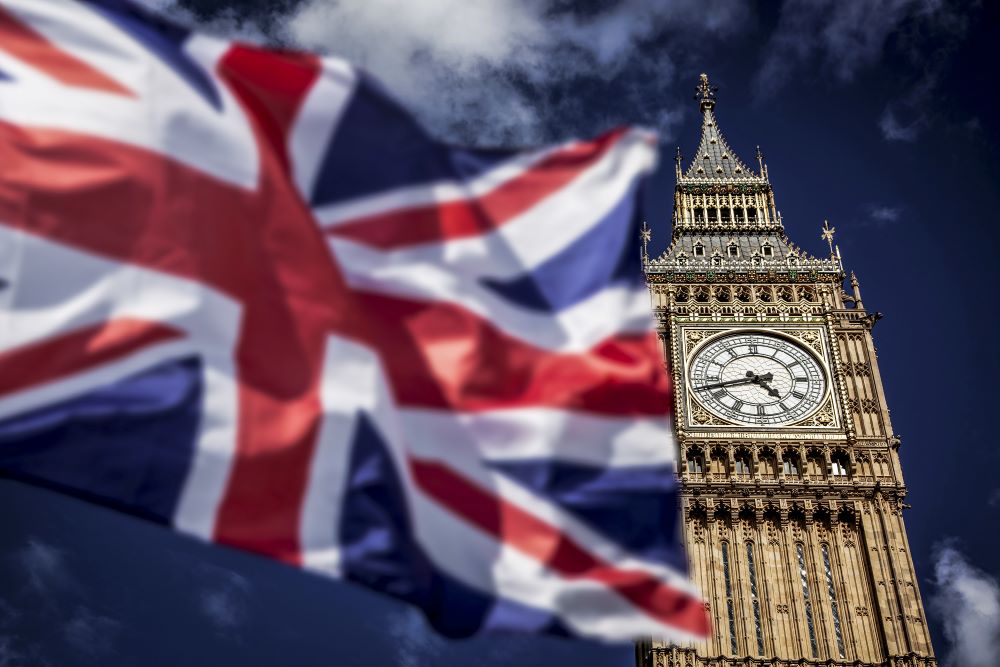
The government will announce that it will introduce a bill to digitise trade documentation in tomorrow’s Queen’s Speech, according to reports in the national media.
Boris Johnson’s government will put forward its proposed legislative agenda for the 2022-23 parliamentary session – the last before the next general election, which must take place by the end of 2024 at the latest.
The FT reports that a short electronic trade documentation bill is among the “surprise measures to be included”.
Move from paper
The bill follows work by the Law Commission of England and Wales which found that global trade generates billions of paper documents a year, adding cost and administrative burden to businesses.
The Commission published draft legislation earlier this year to enable electronic trade documents to be used in the same way as their counterpart paper documents.
Currently, under English law, the ‘holder’ in ‘possession’ of a trade document has special significance, but this paperwork has to be ‘tangible’, ruling out the use of digital documentation.
The draft bill to allow digital documents to take on the same status as physical paperwork, sponsored by digital secretary Nadine Dorries, could save businesses at least £1.7bn a year.
Huge impact
In launching an IOE&IT report on digitalisation earlier this year, IOE&IT director general Marco Forgione said:
“Globally over 2.5 quintillion bytes of data are produced each day. To give a sense of scale, the Milky Way is 1 quintillion metres wide.
“Any change which speeds up the transfer of data has the potential to make a huge impact. In the UK alone, the full digitalisation of trade data, stands to add over 1%, some £25bn, to UK GDP.”
Post-Brexit
There are expected to be more than 30 bills in the Queen’s Speech, including seven paving the way for post-Brexit reforms in areas such as gene editing, data protection and trade policy, the Times reports.
“The central aim is to remove barriers that are holding back the economy while promoting new areas of growth,” a government source said. “We need to use this as an opportunity to demonstrate that we understand the public’s priorities.”
A Brexit freedoms bill will let ministers repeal “hundreds” of pieces of EU legislation still in UK law without a full vote in parliament.
Data reform
According to Sky News, the government will also announce a new data reform bill in the Queen’s Speech to allow the UK to deviate from EU privacy legislation, despite concerns it risks compromising the UK’s data adequacy status.
There have been calls for the UK to do away with adequacy entirely and instead favour data trades with other states with whom it is building trade agreements, including Japan and Singapore.
However, a report by the New Economics Foundation estimated that if the UK were to lose its adequacy status with the EU it would increase business costs by at least £1.6bn over the next 10 years.
No foie gras ban
The Times also reports that some planned bills have been ditched, including plans to ban the import and sale of foie gras and fur.
The production of foie gras and fur farming has been banned in the UK for over a decade, but the goods are still imported. An estimated 200 tonnes of foie gras is imported from the EU every year.
Other areas in the speech could include a financial services bill, setting up post-Brexit regulation to capitalise on new areas including cryptocurrencies.
Cheaper food
Dominic Raab, deputy prime minister, denied that the Queen’s Speech would be a “reset” moment, that the government was looking to reform areas such as agriculture to create cheaper, healthier food.
“We’re going to be talking about areas where Britain has a real comparative advantage, tech, financial services,” he said.
‘Glaring issues’
Farming UK reports Liberal Democrat calls for the Queen’s Speech to address “glaring issues” being faced by people living in the countryside.
Farmers are increasingly concerned over the government’s agriculture policy, as many fear an undercutting of the UK’s high standards in food production through the agreement of trade deals with markets such as Australia, New Zealand and potentially the US.
Industry groups are also worried over growing worker shortages, as well as increased red tape and delays at borders.
